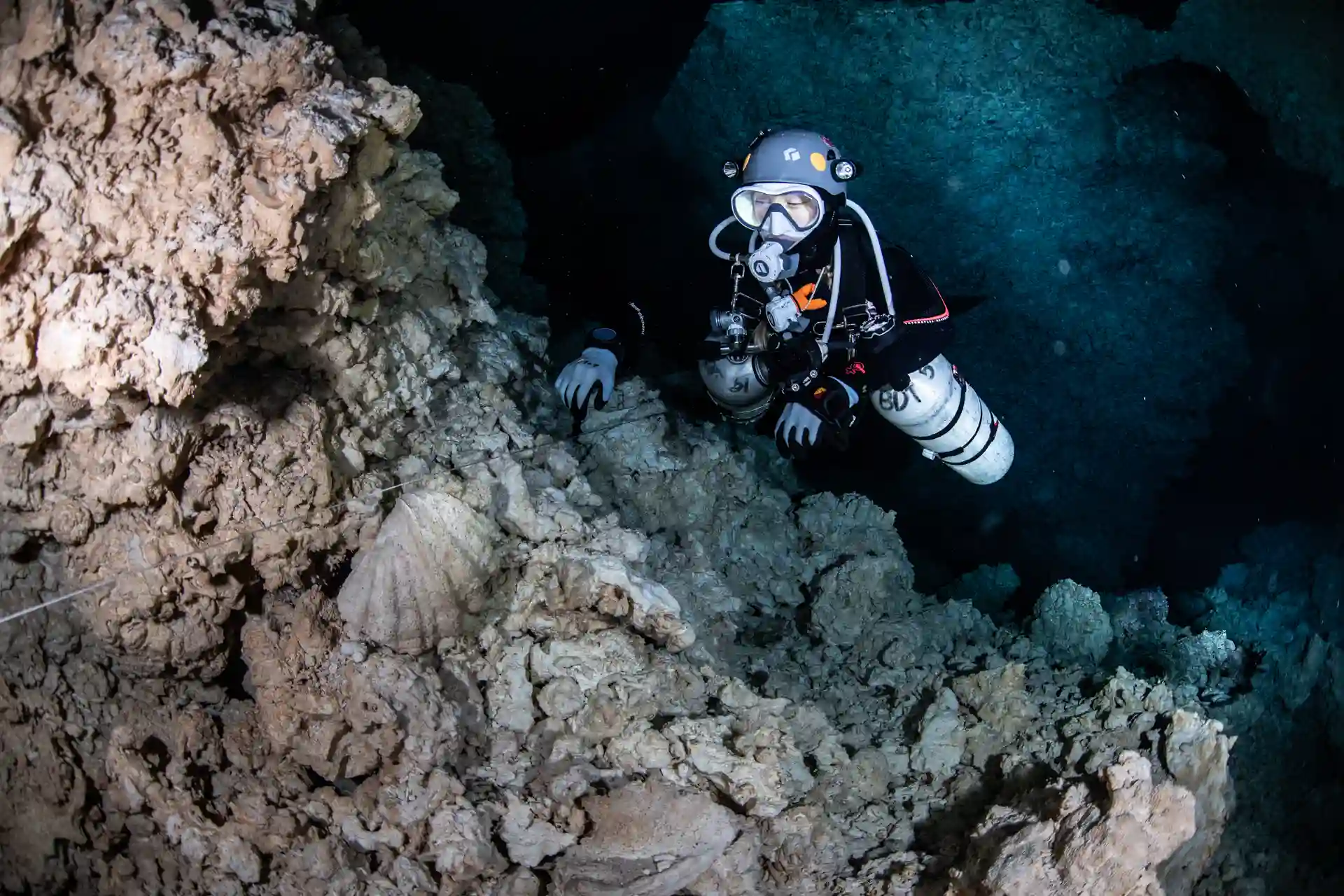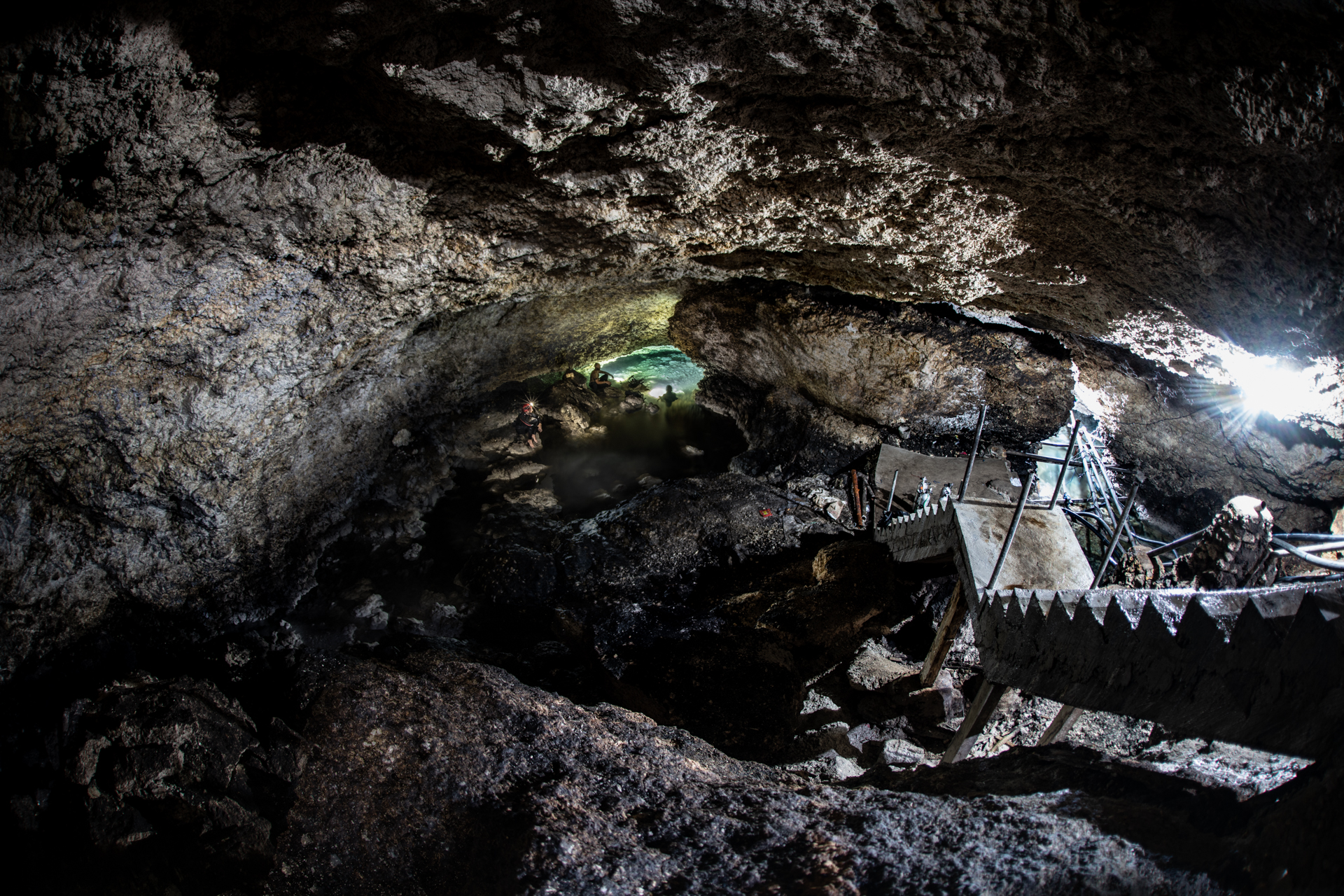OUR OBJECTIVES
Preserving Indonesia’s freshwater ecosystems for a sustainable future
Explore unknown cave systems to discover natural, untapped water supplies, reducing local reliance on water in plastic bottles.
Pulau Muna is known as “The Island Of A Thousand Caves” in Bahasi. Cave entrances are found all over the island, and several have evidence of human activities in the form of cave art dating back thousands of years. The water is nestling underground in a massive cave system, formed inside an ancient coral reef, making the exploration both stunning and challenging.
Villages across the island acquires water through various means. Some have costly access to local pump systems; others are buying water from privately owned aquifers. Many import bottled water via freight shipping.
Expedition Buteng will be investigating one of the major freshwater reservoirs of the island of Pulau Muna, with the intention of creating unified and sustainable access to the groundwater. The direct result will be measurable by limiting plastic waste and increasing welfare of the local communities.
During the expedition, a team of speleologists will explore and survey two large dry cave systems, prospecting for entrances into the aquifer. There is currently only one known entrance down to the water. Finding more will extend the knowledge of the geography of the water and increase accessibility to the water. Several of the team members of professional speleologists are also scientists, including an Archeologist and a Biologist. The dry cave team have explored dry caves all over Indonesia and several are also cave divers.
Besides investigating the scientific aspects of the unique freshwater aquifer, the cave diving team will push to explore the actual size, to help understand how the resource can be sustainably sourced.

Collect unique and previously inaccessible data, working with international universities and scientists.
Due to their inaccessibility, caves are some of the least understood places on our planet. Before we can protect a subterranean environment we must describe it. Geomorphology and hydrologic surveys will illustrate the cave’s scope and water flow dynamics while identifying external impacts from contamination, microplastics and climate change. Customized, pioneering field sampling protocols and analysis will provide the scientific basis for ecosystem preservation and UNESCO Global Geopark recognition. Biological samples will describe the genetic biodiversity of the cave ecosystems, including new species.

Document geology to support UNESCO geopark application, to preserve the local natural and cultural heritage.
The island of Pulau Muna is a fossilized prehistoric coral reef, and this fact is evident everywhere on land. Fossilized corals and crustaceans are now a part of every rock that is turned over. The fossils are unique, and can create economic income by attracting moderate eco-tourism, both inside the dry caves and in the water-filled cave sections. Given that similar areas are vulnerable to exploitation by the concrete industry, the local government is interested in more long-term, sustainable, and eco-friendly revenue streams for the communities.
Currently, the island has little tourism, but those who do travel to Pulau Muna, are mainly there to travel back in time by visiting the world famous cave art. By establishing a geopark, geo-tourism can be nurtured and grown, creating a future with a more sustainable and environmentally friendly revenues for the communities.
During the expedition, the fossils will be documented, and with the expected proof of uniqueness, the authorities of Buton Tengah strive to protect the area by creating a National Geopark, with the long-term goal of applying for it to become a UNESCO Global Geopark.

OUTREACH
Education, both inside and outside the borders of Indonesia, is a vital objective of the expedition to help manifest the unique nature, beauty, and importance of Indonesia’s underground aquifers. To deepen global understanding of water conservation, outreach programs will be conducted during the expedition, targeting youth and university students through live broadcasts. The team will reach thousands of individuals on virtual field-trips through the platform “Exploring by the Seat of Your Pants”.
Additionally, the team, consisting of scientists, professional explorers, and visual storytellers, will deliver scientific and impactful articles across a wide range of industries. High-end photography and videography, both above and below the water, will be captured by world-renowned photographers to support the team’s efforts.
